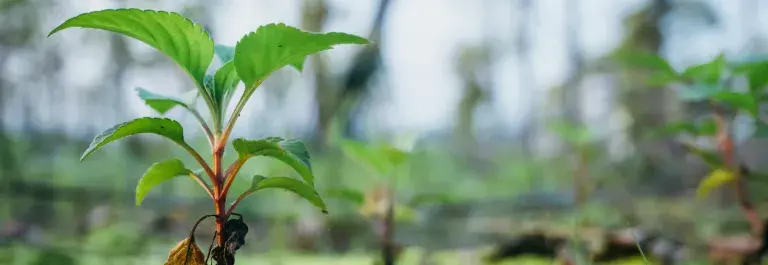Learning from ISEAL Innovations Fund projects
To meet today’s sustainability challenges requires new thinking, new collaborations and new ways of working.
Building on the success of phase one (2018-2022), the second phase of the ISEAL Innovations Fund launched in 2023 to support sustainability systems in developing innovative approaches and sector-wide transformation.
Unblocking and building on innovation
The first phase two grants included three focused on laying the foundations for innovation, building capacity, forming partnerships, or addressing barriers to success. Offering this type of grant early on enables recipients to take advantage of future opportunities for larger project funding, from the Innovations Fund and beyond.
In addition, five grants were awarded to help members build on the rich learning generated during phase one. This approach is central to the Innovations Fund – ensuring learning is not only shared across the membership, but also built on, scaled, and refined.
Context matters
To succeed in challenging social and geographical contexts requires time and resources to tailor approaches. Innovations Fund grants have given projects the flexibility to adapt along the way.
All three early-stage foundational grants identified barriers to innovation at the outset, including stakeholder resistance and limited data. Activities were adapted as needed, including expanding public consultations where interest was high, and adjusting timelines and geography to reflect socio-political context.
Flexibility was also important for GoodWeave's project, which focused on detecting forced labour in the ready-made garment sector in Bangladesh. GoodWeave recognised the risk of intimidation and coercion of workers if interviewed within their workplace.
They instead visited workers in more informal and private settings such as their homes to complete the tailored questionnaire. While this approach was logistically challenging and required an extra investment of time, it also encouraged open and honest communication without fear of repercussion.
Similarly, Sustainable Agriculture Network's (SAN) 'Expanding a blueprint for sustainable landscapes' project built on SAN’s participatory Blueprint landscape sustainability assessment tool to optimise it for a local context.
The tool combines on-the-ground observations from local stakeholders with GIS data and desk-based research, producing a detailed and accurate landscape assessment. SAN’s Replication project recognised the substantial burden that data collection put on local farmers and smallholders, and took steps to simplify the process, as well as making it more gender and socially-inclusive.
This included community-led engagement activities such as focus group conversations with community members, shortening the surveys, and democratising the assessment results in clear visual formats to ensure all stakeholders could make use of them.
SAN has also published a Methodological Guide for Replication. This will simplify the process of rolling out the Blueprint tool in other crop and socio-environmental contexts.
Testing, adapting and scaling: why this is key to systems-level change
Replication projects have shown some powerful results, by iterating solutions and improving innovations. They have also begun the important process of horizontal scaling, transplanting pilot schemes into new geographies and sectors.
Assurance Services International's 'Smart assurance approaches' project (ASI) built on findings from an earlier Innovations Fund project on the use of GIS by auditors. In this phase, they made use of emerging technologies including AI, remote sensing and drone technology to supplement more resource-intensive monitoring approaches.
This approach improved land survey results by providing more high-resolution and real-time data, as well as making the prioritisation of site visits easier and more cost-effective. Vitally, the project brought in new partners including Forest Stewardship Council and Aquaculture Stewardship Council, to provide new insights and perspectives, to benefit directly from the approach and expand into new geographies.
Similarly, Better Cotton's work on greenhouse gas (GHG) accounting has drawn on the expertise of various partners across several phases to drive continuous improvement.
From July 2020, Gold Standard and SustainCERT led an Innovations Fund project, developing guidance and recommendations to support ISEAL members like Better Cotton to create a transparent reporting system for GHG emissions. Alongside this project, Better Cotton commissioned sustainability consultants the Anthesis Group to conduct a baseline study of GHG emissions on their behalf.
Finally, Better Cotton’s latest project in 2023 combined these findings, adapting the methodology and reporting plans to make them more rigorous, future-proof and inclusive of all stakeholders.
What’s next?
Since awarding its first projects, the Innovations Fund has launched seven more funding rounds on topics including collective action, due diligence, climate change, and unlocking barriers to innovation. To find out more about current projects and new funding opportunities for collaborative innovations, visit our webpages.
The Innovations Fund is supported by the Swiss State Secretariat for Economic Affairs SECO and UK International Development from the UK government:

